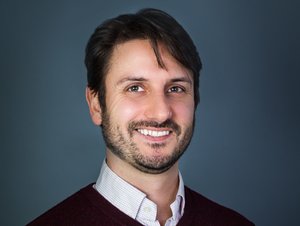

Rather than incentivize forward-thinking innovative students with the promise of $100,000 and mentorship to leave their academic training grounds and launch the next big startup, serial entrepreneur Michael Baum is offering young bright minds $100,000 to hack away at their dream ideas – while still enrolled in school. The anti-Thiel model, Baum is on a mission to bridge the gap between school and founding a thriving company, effectively working alongside colleges and universities instead of against them like Paypal co-founder Peter Thiel.
Baum is the top brass behind Founder.org, an investor and company building program geared toward facilitating the growth of concepts visualized by student entrepreneurs around the world. Touted as a transformative hands-on experience, the initiative fast tracks fledgling businesses through the barriers associated with creating a high impact company, while the venture is in its formative stages.
While Founder.org offers coaching by top-tier industry professionals, funding and the invaluable lessons that come with conquering the challenges of developing a genius idea that can positively transform the world around us, so too does Peter Thiel's fellowship. The main difference between the two capital accelerators is that one wants students to get their diploma, while the other is more intent on encouraging aspiring entrepreneurs to tap into their creative minds and make the world a better place right here, right now.
“As student debt soars and the wages of college graduates sag, the need for more thoughtful and personalized approaches to finding success is greater than ever,” Thiel said when referencing the newest group of "20 under 20" tinkerers, movers and shakers. “We hope the 2014 Thiel Fellows inspire people of all ages as they demonstrate that intellectual curiosity, grit, and determination are more important than credentials for improving civilization.”
Over the course of the last three years, Thiel Fellows have started dozens of companies, created more than 182 jobs and generated upwards of $87 million in economic activity, which certainly attests to the success of the fellowship. The popularity of the fellowship is also unheard of, with 550 people from nearly every state in the U.S. and from 44 different countries applying to be a part of the elite crew of 20.
In 2014, though, it was Founder.org that surpassed Thiel Fellows in applications, with approximately 1,000 individuals hoping to be among the 10 winning teams chosen.
"Most teams, when they entered program, didn’t even have a product yet," Baum said of this year's class. "That's emblematic of the companies we’re looking for--big, off the beaten path ideas that aren’t necessarily going to be funded by angels or the venture community."
As for the success Founder.org alums have had, Baum references Smart Vision Labs, which recently won $1 million in the Verizon Powerful Answers competition. Looking at the 2014 batch, it's abundantly clear that Founder.org has some potential giants on its hands. For example, a University of London team called Bio-bean makes biofuel out of coffee waste and is already in talks with McDonald's U.K. about a partnership. Then there's the Harvard Business school team Cryoocyte that's developing technology to freeze fish eggs, which could completely transform the seafood industry.
Baum admits that he respects Thiel, but he firmly believes in the value of staying in school. "I suspect that most of these companies will be 8- to 10- to 12-year endeavors," he said. "Why not stay in school, finish your degree, and use the environment of the university to bootstrap your company? Universities have gotten a lot smarter about opening up resources to student entrepreneurs."




